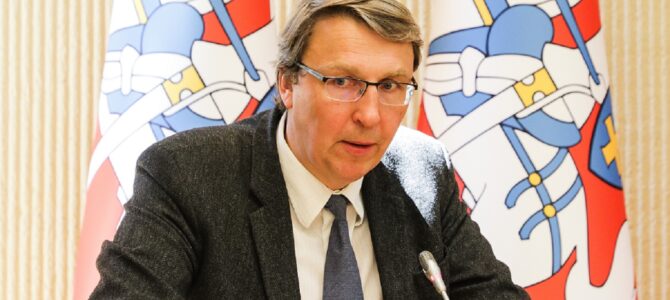Lithuanian journalist Vytautas Bruveris gave a presentation at the Fifth World Litvak Congress held in Vilnius last month called “Jews in Lithuania: A Still-Undiscovered or an Already-Lost Shared History?”:
Many here have spoken about the war in the Ukraine. That’s natural, because it is continuation and horrific metastasis of the same story we are all talking about. I would like to talk about a different aspect, however, about empathy. Lithuanian society is showing they are very capable of human empathy and solidarity. We see that especially clearly in the huge and praise-worthy movement to receive war refugees from the Ukraine.
A question arises in this context, however, for me: is it not true that Lithuanian society are most able to feel empathy for those whom they understand as their own people, as participants of the same history?
In any event, empathy is one of the things I would most like to talk about. The second is justice. Because empathy and justice are absolutely inseparable, mutual sine qua non in this context.
How does history exist after life has passed? Mainly in two forms.
First, as museum artifacts and as information discovered, collected, preserved and passed on about the life which in the present occupies a place on some shelf.
Second, as an empathic connection with the past, more accurately with the people who lived in that past. And this connection is always in the present, becoming a common feature with the people as well who are now together in the present. All of this connects us into a single community which lives together in the flow of time, in history.
Full text in Lithuanian here.


